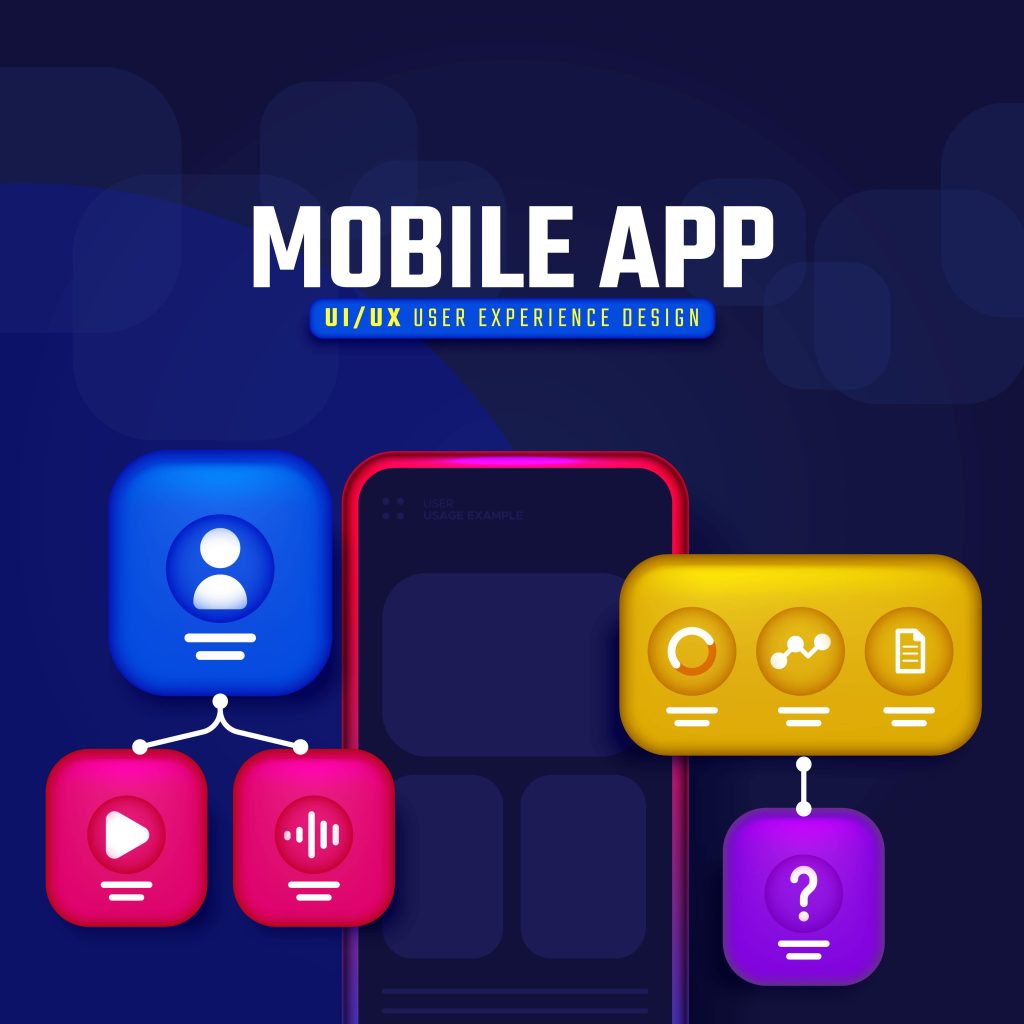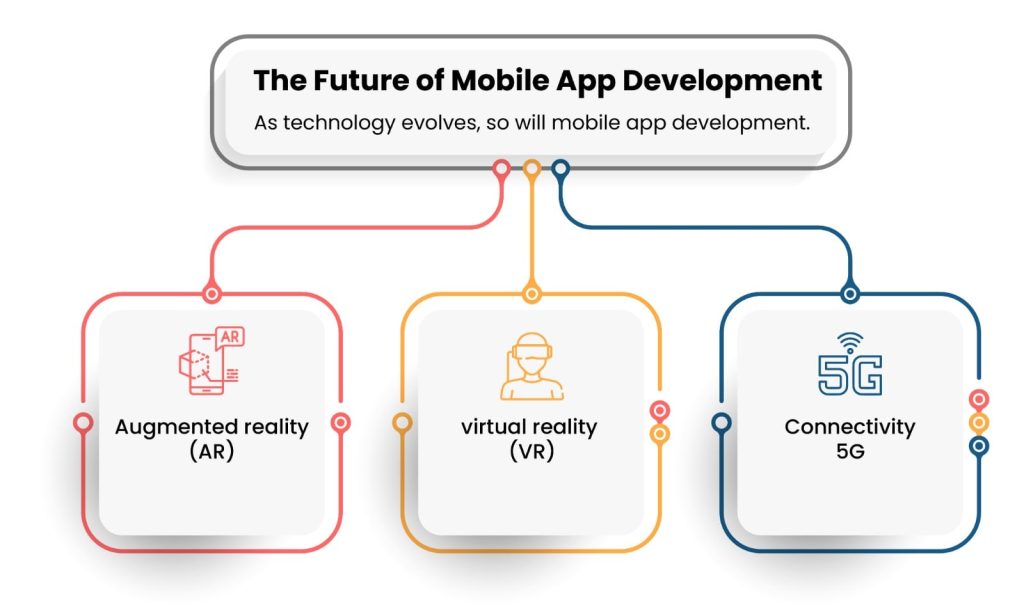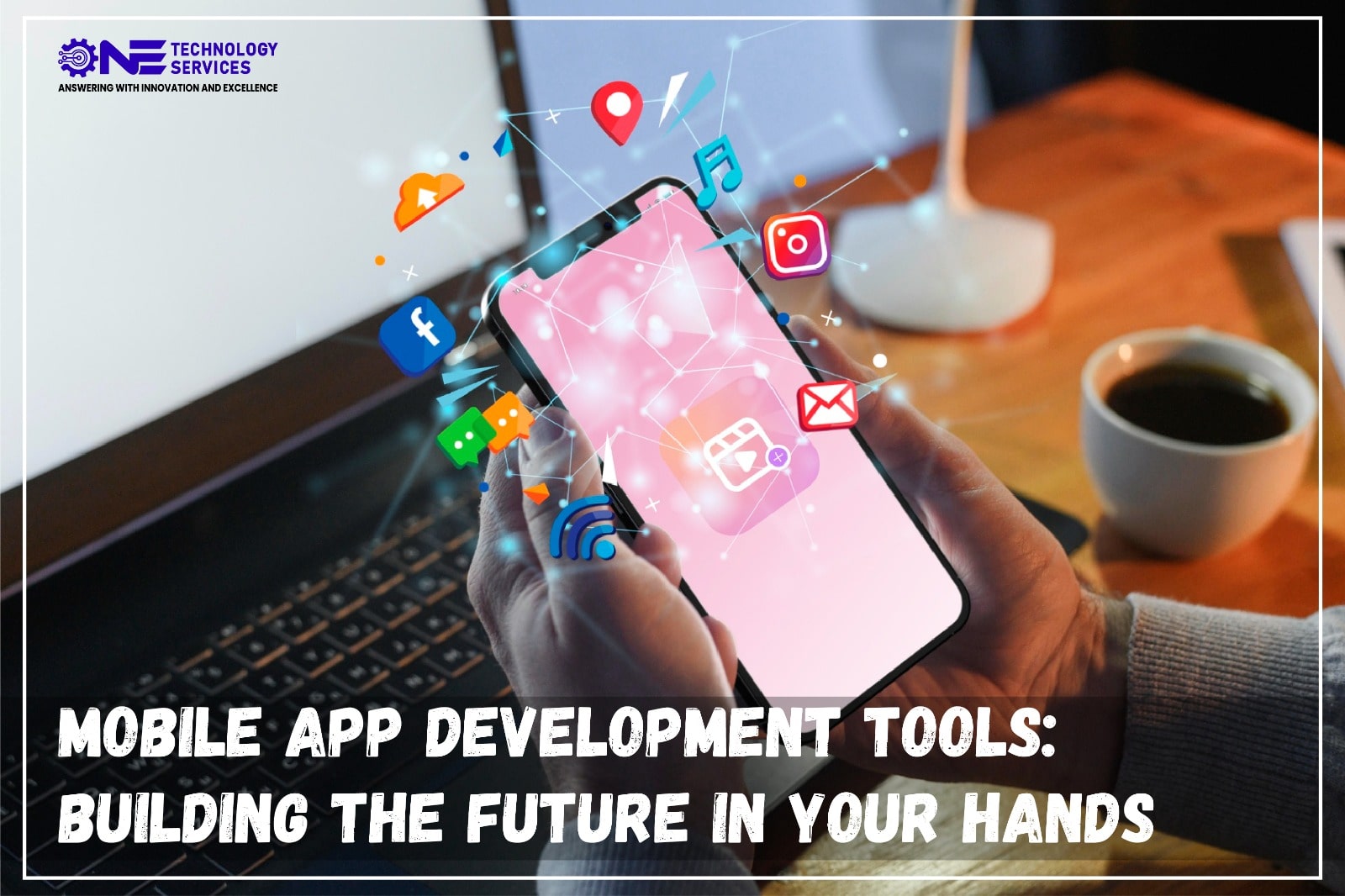In today’s fast-paced digital landscape, mobile applications have become an integral part of our lives. From ordering food to managing our finances, mobile apps simplify and enhance various aspects of our daily routines.
If you’re considering venturing into the world of mobile app development, you’re in the right place. In this comprehensive guide, we’ll explore the essential mobile app development tools that empower developers to create cutting-edge, user-friendly apps.
Introduction: The Evolution of Mobile Apps

Mobile applications have come a long way since the inception of smartphones. From the early days of basic utility apps to today’s complex, feature-rich applications, the journey of mobile app development has been remarkable. The development tools available now play a pivotal role in shaping this evolution.
Integrated Development Environments (IDEs)
IDEs are the backbone of mobile app development. They provide a unified platform for writing, testing, and deploying code. Popular IDEs like Android Studio for Android app development and Xcode for iOS development offer a rich set of features and debugging capabilities.
Programming Languages for Mobile App Development
Choosing the right programming language is important.
While Java and Kotlin are preferred for Android,
Swift and Objective-C are popular choices for iOS.
Cross-platform development languages like JavaScript, React Native, and Flutter offer versatility.
User Interface (UI) Design Tools

A visually appealing and user-friendly UI is vital for app success. Tools like Adobe XD, Sketch, and Figma help designers create stunning interfaces, while tools like InVision facilitate prototyping.
Backend Development Frameworks
Backend frameworks like Node.js, Ruby on Rails, and Django are essential for handling server-side logic and database management, ensuring your app’s seamless functionality.
Version Control Systems
Version control systems like Git help developers collaborate, track changes, and ensure code integrity, making it easier to manage large-scale projects.
Testing and Debugging Tools
Robust testing is crucial for app reliability. Tools like Appium, XCTest, and Espresso enable automated testing across various devices and platforms, while debugging tools like Firebase DebugView streamline issue resolution.
Analytics and Performance Monitoring
Understanding user behavior is key to app optimization. Tools like Google Analytics and Firebase Analytics provide valuable insights into user engagement and app performance.
Cross-Platform Development Tools
To reach a wider audience, consider cross-platform development tools like React Native, Xamarin, and Flutter. They allow you to write code once and deploy it across multiple platforms.
Cloud Services for Mobile Apps
Leverage cloud services like AWS, Firebase, and Azure for scalable storage, authentication, and serverless computing, reducing infrastructure management overhead.
Security and Encryption Tools
Protecting user data is paramount. Tools like OWASP Mobile Security Project and Appknox offer security assessments and encryption solutions to keep your app secure.
App Store Optimization (ASO) Tools
To increase visibility, utilize ASO tools like Sensor Tower and AppAnnie. They help optimize app listings, keywords, and monitor competitors.
Collaboration and Communication Tools
Effective teamwork is vital. Tools like Slack, Trello, and Jira facilitate communication, task management, and project coordination among development teams.

Conclusion: Building the Next Big Thing
In conclusion, the world of mobile app development is dynamic and exciting, offering endless possibilities. Armed with the right tools and a creative mindset, you can transform your app idea into a reality. Start your journey today, and who knows, your app might be the next big thing!
FAQs
1. What are the best programming languages for mobile app development?
The choice of programming language largely depends on your target platform. For Android app development, Java and Kotlin are highly recommended, while Swift and Objective-C are preferred for iOS. If you aim for cross-platform development, consider JavaScript with frameworks like React Native or Flutter.
2. How can I ensure the security of my mobile app?
Mobile app security is paramount. Utilize tools like OWASP Mobile Security Project and Appknox to perform security assessments. Implement secure coding practices, use encryption for sensitive data, and regularly update your app to patch vulnerabilities.
3. Are cross-platform development tools a good choice for my project?
Cross-platform development tools like React Native, Xamarin, and Flutter offer advantages like code reusability and faster development. However, they may have limitations in accessing platform-specific features. Assess your project requirements and target audience before making a decision.
4. What is ASO, and why is it important for app success?
ASO, or App Store Optimization, is the process of optimizing your app’s listing on app stores. It involves keyword optimization, attractive visuals, and monitoring your competitors. ASO is crucial because it improves your app’s visibility, leading to more downloads and higher rankings.
5. What emerging technologies are likely to impact mobile app development in the future?
The future of mobile app development holds exciting possibilities. Emerging technologies like augmented reality (AR), virtual reality (VR), and 5G connectivity are set to revolutionize the industry. Integrating these technologies into your apps can provide unique user experiences and open up new markets.
